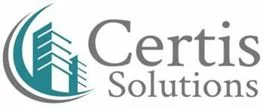Professionals looking to be hired as a Project Engineer in California are in luck. The role of “Project Engineer California” is among the most in-demand positions in that state because of a boom in engineering projects. In fact, the average Project Engineer salary California businesses pay is highest in Richmond, which is higher than a Project Engineer salary anywhere else in the United States. But when hunting for Project Engineer jobs in California, what skills will employers be seeking?
Even in a glut market, it’s still essential for candidates to have strong management, communication, and organizational skills to ensure a project will be completed on time and within budget. If this sounds like you, then a wealth of jobs can be found as a Project Engineer in California. What skills can you develop to progress as a Project Engineer?
Skills and certification
Project Engineering is a career field with upward mobility and potential for advancement. There are several skills a professional can foster to raise their Project Engineer salary and improve their chances of getting a job. At a minimum, Project Engineers must have a bachelor’s degree in mechanical, aerospace, or electrical engineering though some may have degrees in other technical fields or engineering management.
Project Engineering involves a mix of soft skills and hard skills. Soft skills, such as leadership, communication, initiative, time management, and decision-making, are learned in time. Hard skills are taught through training and are tangible, specific, and measurable, such as engineering or computer programming.
Leadership skills
A Project Manager is responsible for the execution of an infrastructure project’s design and implementation. They must be able to effectively lead people in their roles to keep the project running and guide others in implementing the plan.
IT skills
An Engineering Project Manager will be expected to provide technical support and guidance to team members to keep a project running smoothly.
Collaboration and communication skills
Project Engineers must communicate well with other professionals, such as senior management, project developers, financial analysts, and construction subcontractors. Communicating efficiently and effectively with other engineers and laypeople is critical to running a project smoothly.
Engineering skills
Project Engineers are expected to understand mathematics and engineering principles to analyze, design, and troubleshoot parts of the project.
Project management
A Project Engineer must be able to plan, monitor, and evaluate work on-site as the project progresses.
Decision-making skills
When working on projects at the highest level of design, Project Engineers must evaluate the feasibility of plans regarding financial costs, project safety, and quality concerns.
Problem-solving skills
Using their mathematical, engineering, and project management skills, an engineering project manager must plan large infrastructure projects with high expectations placed upon them. These projects will involve solving problems, such as transportation planning or unexpected design issues.
Hone your application skills
When seeking Project Engineer jobs, professionals should take the time to identify soft and hard skill keywords relevant to Project Engineering positions and look at their experience to emphasize relevant experiences.
Adjust your resume
Some skills you can add to your resume are the same skills you need to develop to be more attractive to prospective employers:
- Interpersonal and collaborative skills
- Communication
- Project development
- Programming skills
- IT skills
- Decision-making and problem-solving skills
Objective statement
Synthesizing your goals and dreams into an objective statement. This statement will show prospective employers their goals and intentions to ensure the employer and employees are aligned.
Experience and certifications
Employers value experience, so graduates of cooperative engineering programs in which students earn academic credit for work experience are valued. Be sure to list on your resume any relevant licenses, certifications, awards, or volunteer positions that display your experience and could help you find success as a Project Engineer.
How Certis can help
Project Engineering is an exciting, fulfilling career with new opportunities, people, and experiences. For those seeking Project Engineer jobs in California, Certis Solutions can help lead you to new career opportunities. With 70 years of experience in the industry, Certis Solutions connects its contractors with the AEC industry’s most dynamic, prominent companies and their newest projects.
With Certis working to ensure fair working conditions, AEC Project Engineers can connect with many job opportunities in dynamic, exciting projects across California. Let Certis help you excel. Contact Certis Solutions today.
